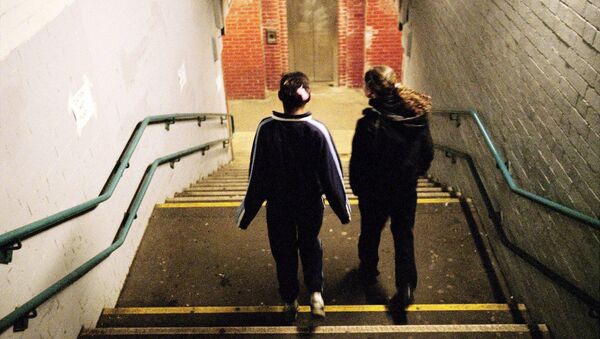p>Roughly 3.7m children are living in absolute poverty across the UK, an increase of 200,000 in a year, new data from the UK government has revealed.
The new figures have challenged claims from British cabinet ministers who said last year that absolute poverty rates had been falling.
The news comes after a Resolution Foundation study showed last month that the number of children living in poverty would instigate a crisis by 2023 — 2024 if the government failed to implement effective changes to universal credit and other UK benefits systems.
The Resolution Foundation said that the main factors driving UK income inequality were benefits and tax credit cuts, which hit lower and working class families with over two children the most.
CPAG chief executive Alison Garnham said: "Despite high employment, today's figures reveal that 70 per cent of children living under the poverty line have at least one parent in work. That is not an economy that is working for everyone."
— Dean Hochlaf (@Dhochlaf) March 28, 2019
She added that the increase in child poverty for working families had been "widely anticipated and could have been avoided" but that the government chose to ignore the dangers and missed "another opportunity to do the right thing for children and families despite the fact that the freeze had already achieved its planned savings".
"At this critical point in the UK's history, we need to step back and ask what kind of country we want for our children."
Such cuts to social welfare systems, in addition to Brexit, were fuelling the increasing poverty numbers, according to a report in November from the UN special rapporteur on extreme poverty and human rights.
READ MORE: Charity Chief Insists Support Funding Should Continue for Rough Sleepers
UK ministers were "looking at what more can be done to help the most vulnerable and improve their life chances," a government spokesperson said. "Tackling poverty will always be a priority for this government, and we take these numbers extremely seriously."
"Employment is at a record high, wages are outstripping inflation and income inequality and absolute poverty are lower than in 2010," the spokesperson added. "But we know some families need more support, which is why we continue to spend £95bn a year on working-age benefits."



